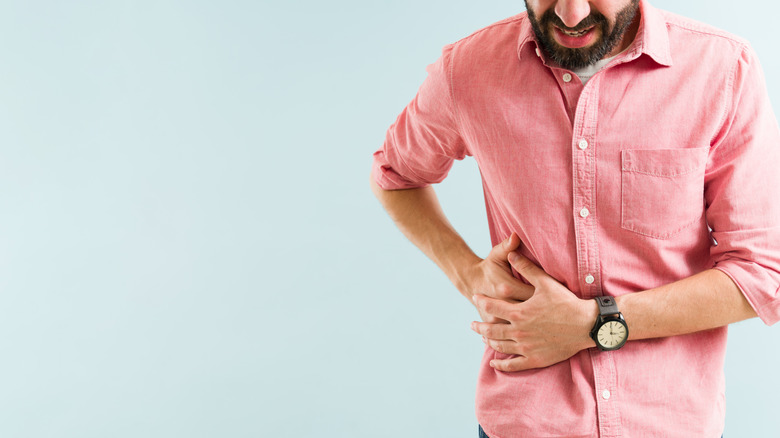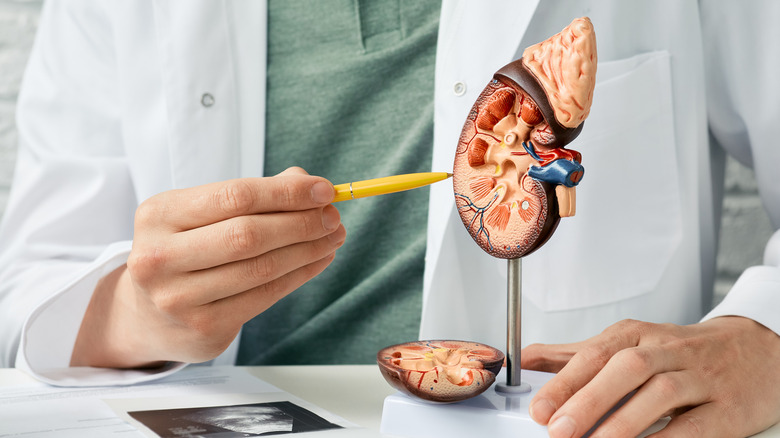The Real Reason Men Are More Likely To Get Kidney Stones
Anyone who has ever had kidney stones never forgets the experience. Kidney stones are hard, solid masses that usually originate in the kidneys, although they can be found anywhere along the urinary tract (via Healthline). The most common type of kidney stone is a calcium stone, which is created when there is too much calcium oxalate in the body. Other types of kidney stones include uric acid stones, struvite stones, and cystine stones.
Kidney stones are more common in men than women. The exact cause of this is unknown, although experts have some theories about why 11% of men will experience this condition at least once in their life while only 6% of women will be afflicted (via Orlando Health). Diet can play a role in someone's risk of developing a stone and men are more likely to have a lot of protein and salt in their diets. Both of these are risk factors for kidney stones. Dehydration can also put someone at risk of getting kidney stones and men are more likely to not get enough water during the day than women.
Kidney stones symptoms and treatment
Symptoms of kidney stones include severe pain in the lower abdomen, a burning sensation while urinating, discolored urine, a constant need to urinate, nausea, and vomiting (via Mayo Clinic). If you suspect you have a kidney stone, your doctor can run tests to create a diagnosis. This may include blood testing, urine testing, or imaging. Your treatment will vary depending on the size of the kidney stone and which type of stone it is. Small kidney stones can often be passed naturally. Your doctor may prescribe pain relievers to ease some of your discomfort as you wait for the stone to pass. They may also prescribe a medication that relaxes the ureter, which can make passing more comfortable.
Some kidney stones are too large to pass and need to be treated another way. Some stones can be broken up using extracorporeal shock wave lithotripsy (ESWL), which is a procedure that uses sound waves to create vibrations that break up large stones. If this procedure doesn't work, surgery may be required. Once your kidney stone is no longer in your body, your doctor can help you find ways to reduce your risk of developing another one. This may include lifestyle changes or medication.


